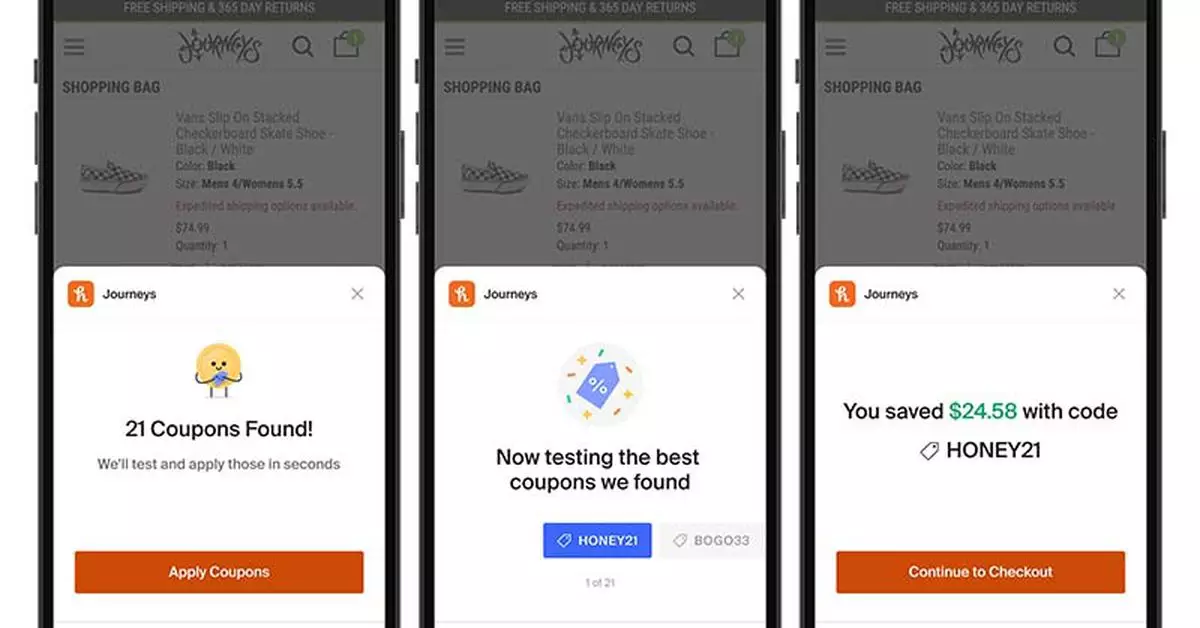In the world of online shopping, where captivating deals often lure consumers into a click-happy frenzy, extensions like PayPal Honey promise to be the ultimate ally. Theoretically designed to hunt for discounts and enhance the shopping experience, Honey has gained immense popularity, significantly endorsed by influencers and tech enthusiasts alike. However, recent allegations from YouTuber MegaLag challenge the core functionality and ethical implications of the extension, painting a rather troubling picture of its operations.
MegaLag’s exposé illuminates unsettling claims regarding PayPal Honey, describing it as a “scam” that may unintentionally undermine the efforts of influencers who promote it. One key criticism is the extension’s apparent inefficiency in locating valid coupon codes. Shoppers often find that Honey either fails to retrieve a discount entirely or suggests a Honey-specific code that, as MegaLag argues, may not always provide the best deal available online.
The crux of the controversy lies in how Honey interacts with affiliate links. As detailed by MegaLag, the extension seems to intercept these links, substituting its own tracking code when users utilize its checkout feature. This means that even if a consumer reaches a retailer via an influencer’s link—which traditionally would reward the influencer for directing traffic—Honey claims credit for the transaction, regardless of its efficacy in finding a discount.
In response to these allegations, Josh Criscoe, Vice President of Corporate Communications at PayPal, defended Honey, asserting that it adheres to industry norms such as last-click attribution. This assertion invites further reflection on what “industry norms” mean in the context of affiliate marketing—a realm often rife with complexities and misunderstandings.
The ethical implications here are significant. If MegaLag’s claims hold water, the very foundation of influencer marketing, which thrives on trust and fair play, could be undermined by the operations of this seemingly innocuous extension. Brands and their partners must navigate a delicate balance, ensuring that tools designed to enhance consumer experiences do not inadvertently exploit the efforts of those advocating for them.
As MegaLag points out, the Honey extension has proliferated through influencer sponsorships, boasting nearly 5,000 Honey-backed videos across YouTube. The convenience it offers is appealing, but it’s essential for consumers to exercise critical judgment. Are they genuinely saving money? Or are they missing out on better deals that Honey is programmed to overlook due to its affiliations with retailers?
Shoppers should consider adopting a multi-faceted approach while browsing online. Using various browsers for different transactions, as previously suggested by online discussions, could be one way to minimize Honey’s influence over affiliate credit. Moreover, consumers can still manually search for coupon codes on external sites, potentially leading to more significant savings than what Honey might provide.
The Honey controversy raises larger questions about the evolution of affiliate marketing. As the digital landscape continues to evolve, the methods by which online retailers and influencers forge partnerships must adapt as well. Surely, consumer protection should be at the forefront of these evolving practices.
If tools like Honey are, in fact, siphoning away commission from influencers, this could prompt a much-needed conversation about transparency within affiliate marketing. Stakeholders across the board—from influencers and brands to consumers—must advocate for clearer guidelines that prioritize ethical behavior.
While PayPal Honey continues to promote itself as a helpful companion for online shopping, the recent criticisms unearth a need for introspection and reevaluation. Understanding the implications of such a widespread tool is paramount for consumers and influencers striving to navigate the complex waters of online retail and affiliate marketing. It remains to be seen how PayPal will respond to these allegations, but it’s clear that the conversation around ethical practices and consumer rights has only just begun.

